Tunisian cuisine is a delightful fusion of Mediterranean flavors, North African spices, and influences from Berber, Arab, Turkish, and French culinary traditions. Known for its rich and aromatic dishes, Tunisia offers a vibrant tapestry of flavors that reflect its diverse cultural heritage. Here’s a tantalizing guide to some of the best foods you must try when visiting Tunisia:
1. Couscous – The Heart of Tunisian Cuisine
Why Try It: Couscous is a staple in Tunisian cuisine, made from steamed semolina grains typically served with a savory stew of meat (often lamb or chicken), vegetables (such as carrots, potatoes, and chickpeas), and a richly spiced broth. This hearty dish symbolizes hospitality and is a centerpiece of Tunisian family meals and festive occasions.
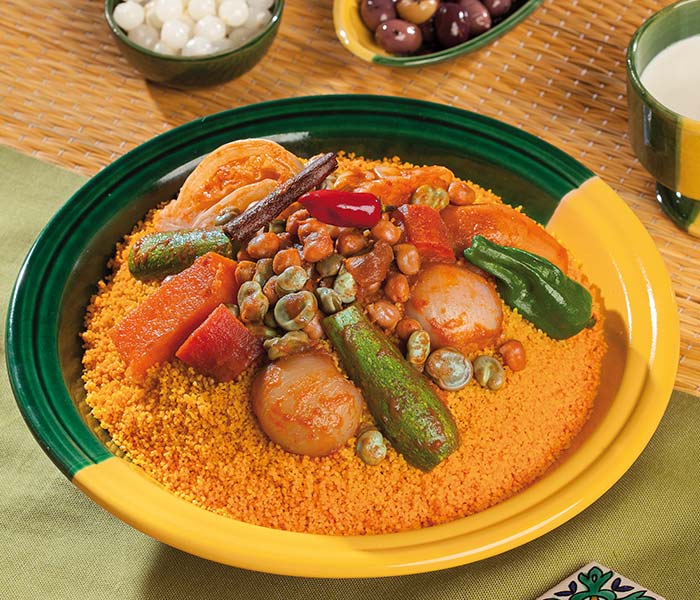
2. Brik – Crispy and Savory
Why Try It: Brik is a popular Tunisian street food and appetizer, consisting of thin pastry dough filled with a variety of ingredients, usually including egg, tuna, capers, and sometimes parsley or cheese. The pastry is folded into a triangular shape and then deep-fried until crispy. Brik is a delightful blend of textures and flavors, often served with a squeeze of lemon.
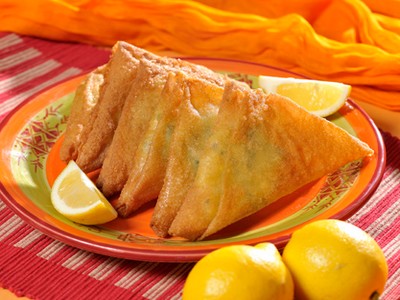
3. Tunisian Harissa – Spice of Life
Why Try It: Harissa is a fiery chili paste made from dried red chilies, garlic, olive oil, and spices such as coriander and caraway. It is a fundamental condiment in Tunisian cuisine, adding heat and depth to dishes like couscous, stews, grilled meats, and sandwiches. Tunisians take pride in their homemade harissa recipes, each offering a unique balance of spice and flavor.

4. Mechouia Salad – Fresh and Flavorful
Why Try It: Mechouia is a refreshing salad made with grilled vegetables, typically bell peppers, tomatoes, and onions. The vegetables are charred over an open flame to impart a smoky flavor, then chopped and seasoned with olive oil, garlic, lemon juice, and sometimes chili peppers or capers. Mechouia is a perfect accompaniment to grilled meats or enjoyed on its own.

5. Lablabi – Comfort in a Bowl
Why Try It: Lablabi is a hearty and comforting Tunisian soup made from chickpeas, garlic, cumin, olive oil, and a splash of vinegar. The soup is often garnished with a hard-boiled egg, capers, olives, and a drizzle of olive oil. Lablabi is a popular breakfast dish in Tunisia, providing warmth and nourishment, especially during cooler months.
6. Makroud – Sweet Delights
Why Try It: Makroud are traditional Tunisian pastries made from semolina dough stuffed with dates, fried until golden brown, and then dipped in honey or syrup. These sweet treats are often spiced with cinnamon or orange blossom water, offering a delightful balance of sweetness and texture. Makroud is enjoyed during festive occasions and celebrations.
7. Fricassé – Tunisian Sandwich Delight
Why Try It: Fricassé is a beloved Tunisian street food, consisting of fried dough filled with various savory ingredients such as tuna, boiled egg, olives, harissa, and sometimes potato or capers. The dough is crispy on the outside and soft inside, making it a satisfying and portable meal enjoyed throughout the day.

8. Seafood – Fresh from the Mediterranean
Why Try It: Tunisia’s coastal location ensures an abundance of fresh seafood, including grilled fish such as sea bream or red snapper, prawns, and calamari. Seafood dishes are typically seasoned with local spices and herbs, served with couscous or a variety of salads. Dining on seafood in Tunisia offers a taste of the Mediterranean’s bounty.

Conclusion
Tunisian cuisine is a feast for the senses, blending robust flavors, fresh ingredients, and centuries-old culinary traditions. From the aromatic spices of couscous to the fiery kick of harissa and the sweetness of makroud, each dish tells a story of Tunisia’s rich cultural heritage and warm hospitality. Whether sampling street food in bustling souks or dining in traditional restaurants overlooking the Mediterranean, exploring Tunisian cuisine promises an unforgettable gastronomic journey that will leave you craving more. Embrace the flavors, savor the spices, and discover the delicious diversity of Tunisian food—a true delight for food lovers and adventurers alike.

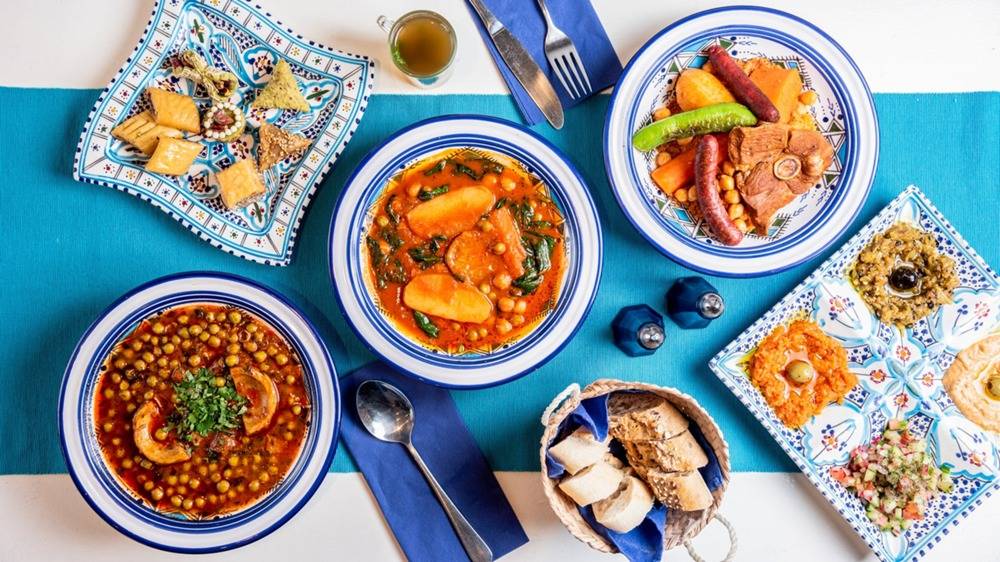
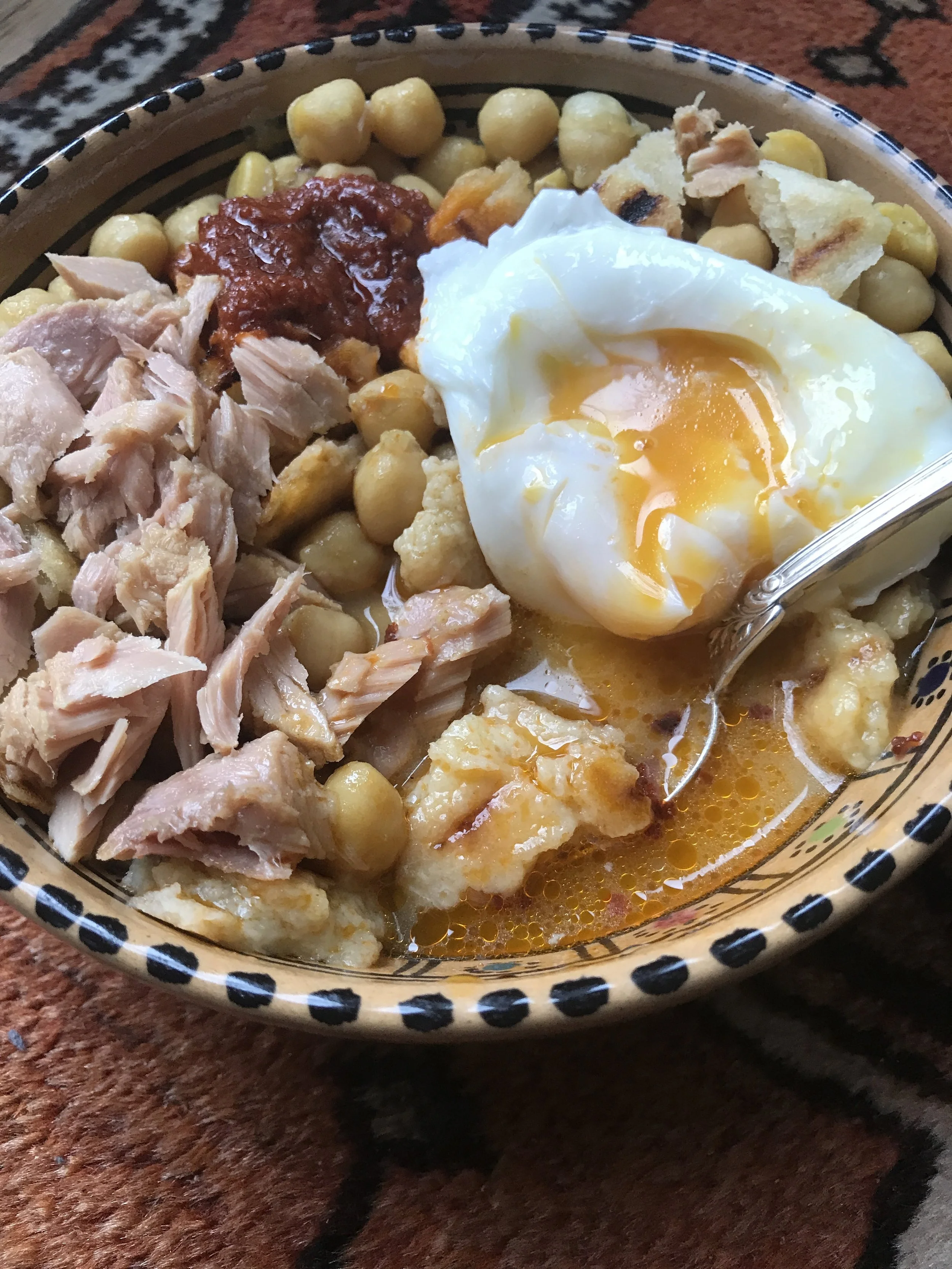









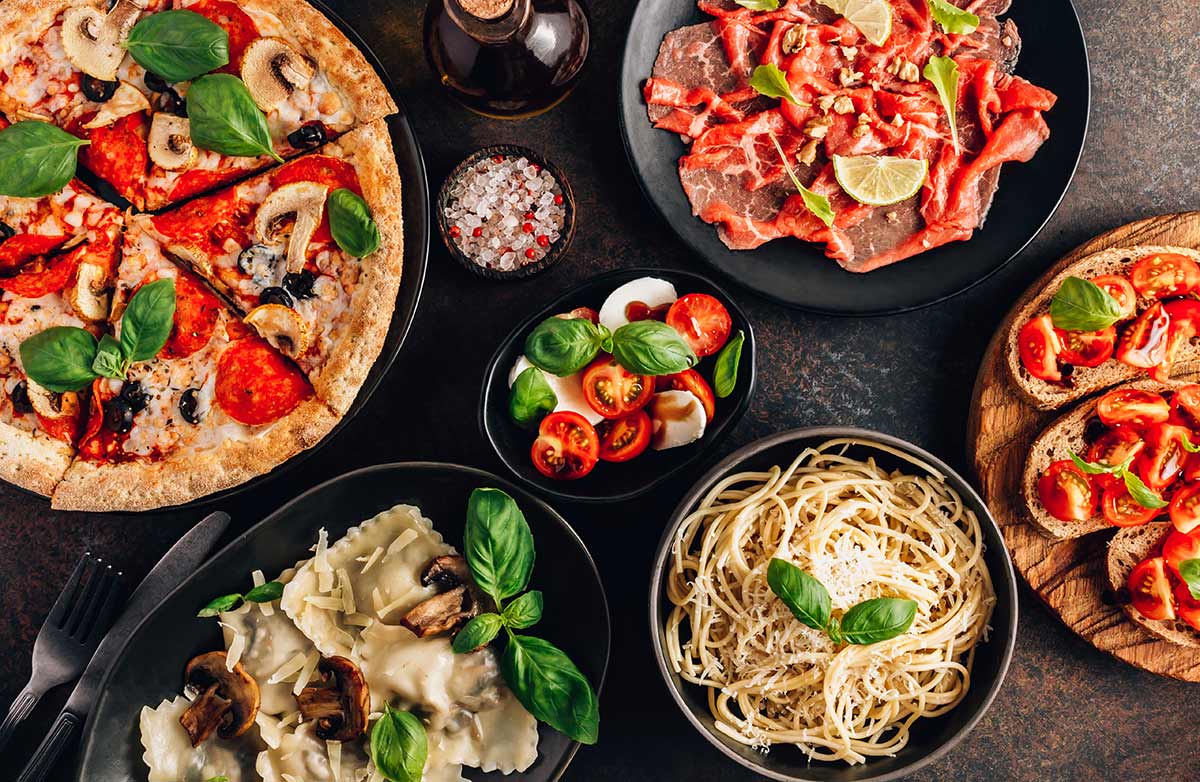


Leave a comment